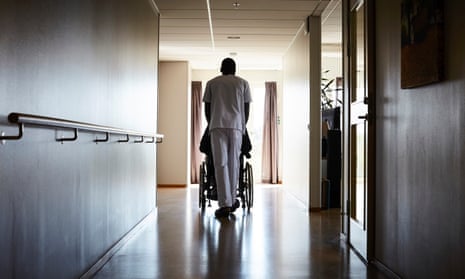Over the course of the past year as a trainee social worker, I have spent months in residence in both a residential aged care facility and in a youth mental health service operated by a hospital in Melbourne.
My first experiences as a clinician are of stepping into service systems in crisis, deprived of resources and beset by fatigue. It’s true that everyone has made sacrifices during this pandemic, but the cost of those sacrifices is borne more by vulnerable community members than privileged others.
For the elder residents of the aged care facility I was placed in, there were only three weeks between April and October where visitors could enter. Internet and phone reception in the home was severely limited by a coverage blackspot.
So insidious were the effects of loneliness that some residents had only 15 minutes of human contact a day; their primary relation was now with television.
On the day before the sixth lockdown of Melbourne was announced, case numbers were climbing, as was anxiety in the building. On several occasions immobile residents called out into the hallway for help; the alert bell located in their rooms had been unplugged. On one occasion, a resident disclosed that care staff had told them to soil themselves.
Such acts constitute a breach of aged care quality standards, but they were not motivated out of maliciousness but rather the sheer inability of staff to meet demand in a resource-constrained environment. They are not forgivable, but no amount of individual responsibility can bear the weight of structural failure.
For young people in the mental health system, the impact of the pandemic is yet to be fully realised. Prolonged experiences of disconnection and emergent care responsibilities are exacerbating already-existing inequalities and disrupting developmental trajectories.
The importance of friendship and the relational dimension of our lives is perhaps best understood by young people, who have been asked to adopt a stoic acceptance that their futures be defined as much by the speed of their internet connection as their commitment to education.
For these young people, disengagement from school and university, inescapable family instability, and the misuse of drugs for self-soothing will have lasting consequences for their life courses.
Several months ago, a youth mental health service in Victoria chopped hundreds of young people from its impossible waitlist with a text message asking them to respond within a few days. It is this sort of structural decision-making that is the cause of the yet unseen consequences of the pandemic.
As organisations and institutions attempt to deliver effective care to those in most need, those with seemingly less-urgent needs are abandoned. And how could these experiences be defined in any other way?
Now after months, indeed years, of the grief that important and essential decisions affecting our lives have caused, governments have abdicated the space. It’s a matter of individual responsibility, we are told.
In my early professional experiences, it is my observation that it is those who are surrounded by robust communities, be they family or more broad, that are able to access the intrinsic value required to protect themselves as they are now asked to take responsibility for.
Feelings of loneliness, abandonment and even shame are the substance of an emergent public health crisis that is going to take years to address. Most people will not experience severe illness or need help to make sense of their grief, but for those who bear the most responsibility – those who live with disability, are affected by long Covid or for whom disconnection is of significant consequence – the rest of us need to recognise the inequality of individual responsibility.
For our governments, who have failed to adequately plan for this moment, I hope they understand the role of forgiveness in recovery.
Rhys Kierkegaard is a pseudonym
